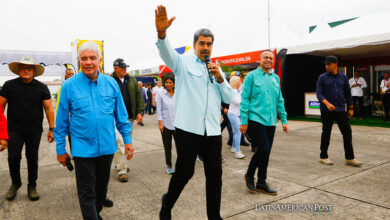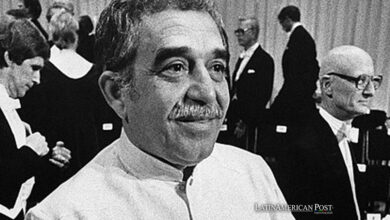New Constitution of Cuba: what changes will it bring?
Listen this article
After 42 years, Cuba will have a new Magna Carta under a project led by the country's first president, Miguel Díaz-Canel Bermúdez

With the death of Fidel Castro, in 2016, Cuba began to experience changes that were not experienced with the leader of the 1959 Revolution. That is why, with the arrival of President Miguel Díaz-Canel Bermúdez to replace Raúl Castro, Cuba has decided to face several transformations that will take it to the 21st century.
Leer en español: ¿Qué cambios traerá la vueva Constitución de Cuba?
An example of this is the call for the creation of a new Constitution that the president made during the month of July of this year, in which, according to The New York Times, the right to private property will be fully recognized, in addition to promoting foreign investment in the country.
However, in order to demonstrate a democratic sense, the Government decided to put some points in the draft of this new Constitution before the approval of the National Assembly. "This exercise of direct participation of the people acquires the greatest political relevance and will be a further reflection that shows that the Revolution is based on the most genuine democracy," said Diaz-Canel.
Diputados a la @AsambleaCuba ofrecen declaraciones sobre #ReformaConstitucional en #Cuba. #PoderPopular #HacemosCuba pic.twitter.com/5mZaswCXCQ
— AsambleaNacionalCuba (@AsambleaCuba) 20 de diciembre de 2018
No more than 5 years in the power
One of the points that have more political advance in this project is the one that dictates that the presidential periods in the island will be limited to five years, with the option of reelection for another five more years. Likewise, Infobae reported that "the minimum age to try for the presidency will be 35 years and the maximum age of 60 when you apply for the first time".
"The limitation of the presidential term is a very important change for the recirculation of Cuban elites. It is another indicator of the development of the bases for a more collective leadership within the one-party system," said political analyst Arturo López-Levy, a professor at the University of Texas-Rio Grande Valley, in an interview with AFP.
The newspaper El Tiempo explains that the president will continue to be elected by the deputies of the National Assembly, and the one-party system with the Cuban Communist Party as a group that directs the government on the island will keep.
It may interest you: Why does Brazil say goodbye to Cuban doctors?
Gay marriage?
Likewise, at the beginning of the process, there was a discussion of the endorsement of the Cuban State for homosexual marriage in the country, but in recent days it was declared that Article 68 that defended this right of LGBT groups came out of the draft Constitution and therefore, it would also come out of the final format.
"Article No.68 was the most approached by the people in the Popular Consultation, in 66% of the meetings. Of the 192,408 opinions, 158,376 propose to replace the proposal with the one currently in force," said the National Assembly through a publication on Twitter.
El artículo No.68 fue el más abordado por el pueblo en la #ConsultaPopular, en el 66 % de las reuniones. De las 192 408 opiniones, 158376 proponen sustituir la propuesta por la que está hoy vigente(24,57 % del total). @DiazCanelB @anamarianpp #ReformaConstitucional #HacemosCuba pic.twitter.com/lz1yDBz2Un
— AsambleaNacionalCuba (@AsambleaCuba) 18 de diciembre de 2018
This means that, according to the governing body, the majority of Cubans did not approve the idea of a union "between two persons with legal capacity ", if it is not specified that said persons should be "male and female."
Faced with this decision, Mariela Castro, director of the National Center for Sexual Education in Cuba and daughter of former president Raul Castro, wrote on her Facebook account: "We have not yielded or given in to the fundamentalist and retrograde blackmails that are politically opposed to the emancipatory project of the Cuban Revolution."
That is why the Assembly decided to replace Article 68 with 82, which dictates that marriage is "like a social and legal institution", which "is based on free consent and equal rights, obligations and legal capacity of the spouses", so it will be "the law that determines the form in which the marriage is constituted and its effects," as explained by the secretary of the Council of State and editor of the text, Homero Acosta, cited for El Clarín from Argentina.
#Homero La Comisión propone diferir el concepto del matrimonio, es decir, que salga del Proyecto de la Constitución, como forma de respetar todas las opiniones. El matrimonio es una institución social y jurídica. La ley definirá el resto de elementos. #HacemosCuba @DiazCanelB pic.twitter.com/LIRG4T9o7w
— AsambleaNacionalCuba (@AsambleaCuba) 18 de diciembre de 2018
No to the capitalism
Lastly, even though these new measures gave the impression of wanting to gradually implement capitalism on the island, the new government has made it clear that although it is open to change, the socialist ideology remains.
"Socialism and the revolutionary political and social system (…) is irrevocable, and Cuba will never return to capitalism. The Communist Party of Cuba, Martian and Marxist-Leninist, an organized vanguard of the Cuban nation, is the leading force of society and of the State, which organizes and guides common efforts towards the high ends of the construction of socialism and progress towards communist society, "explained Granma, official journal of the Central Committee of the Communist Party of Cuba.
#21Jul
Asamblea Nacional @AsambleaCuba
Principios Irrenunciables de la Constitución de la República de #Cuba:
#CubaSocialista no volverá jamás al Capitalismo
El @PartidoPCC es la fuerza dirigente superior de la sociedad y el Estado pic.twitter.com/oEb9LBgozR— Natalia (@nataliauci16) 21 de julio de 2018
However, there will be a decisive change in this socialist model, it is the elimination of the phrase "communist society", which was, according to the 1976 Constitution, the "last stage" to be reached in Castro's Cuba.
The happy notion of "communist society" has finally been recognized as what it actually is: an unrealizable chimera. It is no longer part of the supposed "Cuban constitutional objective", explained Emilio J. Cárdenas, former Ambassador of Argentina to the United Nations (UN), in a column written in the newspaper La Prensa.
The new Constitution of Cuba will be put to a popular vote on February 24, 2019, through a referendum.
LatinAmerican Post | Christpher Ramírez Hernández
Translated from "Nueva Constitución de Cuba: ¿qué cambios traerá a la política de este país? "





